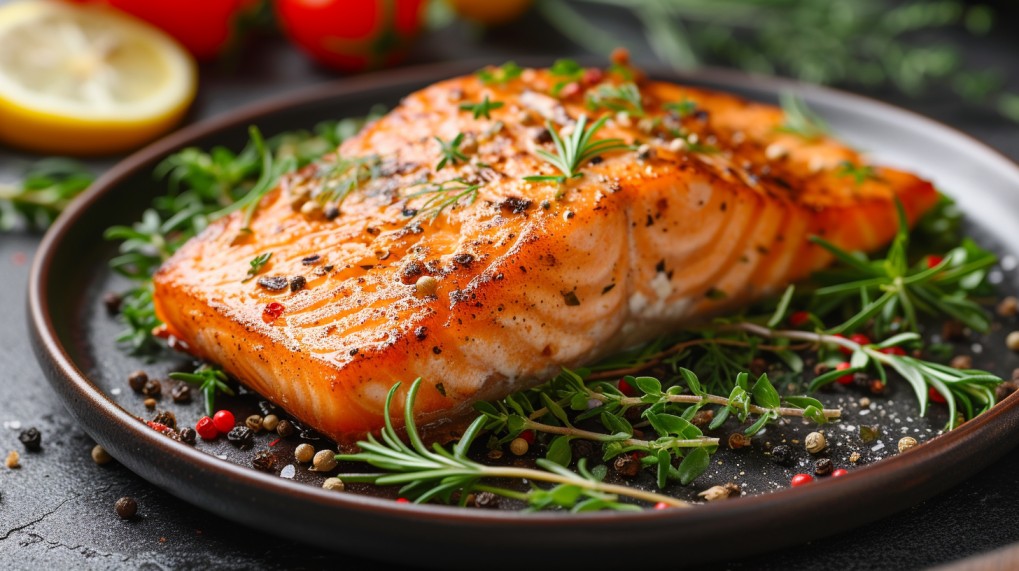Living in Dubai offers a unique blend of modern lifestyle and rich culinary traditions. As more people in the UAE focus on health and wellness, the pescatarian meal plan—a diet that includes seafood and fish along with plant-based foods—is gaining popularity. For residents of Dubai, adopting a pescatarian diet offers numerous benefits that align with local access to fresh seafood, cultural preferences, and a growing awareness of the importance of sustainable living. Here’s why making the shift to a pescatarian meal plan can be particularly beneficial in Dubai.
1. Access to Fresh, High-Quality Seafood
Dubai’s location along the Arabian Gulf provides easy access to a wide variety of fresh, high-quality seafood. Local fish markets offer an array of options, from hammour (grouper) and safi (rabbitfish) to shrimp, crabs, and lobsters. Fresh seafood is a cornerstone of a pescatarian meal plan and provides a rich source of lean protein, omega-3 fatty acids, vitamins, and minerals. Consuming freshly caught seafood means enjoying maximum flavor and nutrition, which can significantly enhance overall health.
2. Supports Heart Health
A pescatarian meal plan is known for its heart-healthy benefits, especially in a region like Dubai, where cardiovascular diseases are a leading health concern. Fish such as salmon, mackerel, sardines, and tuna are rich in omega-3 fatty acids, which have been proven to reduce inflammation, lower blood pressure, decrease triglycerides, and improve overall heart health. With the wide availability of fresh fish, adopting a pescatarian diet can be a delicious and effective way to reduce the risk of heart disease and promote long-term cardiovascular wellness.
3. Combats Heat and Dehydration
Dubai’s hot climate can lead to dehydration and heat-related health issues. A pescatarian diet, rich in fruits, vegetables, and seafood, naturally supports hydration. Many fruits and vegetables have high water content, while seafood dishes are often prepared with hydrating ingredients like tomatoes, cucumbers, and citrus fruits. Additionally, the omega-3 fatty acids found in fish can help the body manage inflammation caused by heat stress, making this diet particularly beneficial for coping with Dubai’s climate.
4. Aids in Weight Management
For those in Dubai looking to maintain a healthy weight or shed a few pounds, a pescatarian meal plan can be an excellent choice. Fish and seafood are low in calories and saturated fats compared to red meats, and they provide high-quality protein that keeps you feeling full longer. Pairing fish with fiber-rich vegetables, whole grains, and legumes can promote satiety and help regulate blood sugar levels. This combination of nutrients helps control appetite and supports weight management, a common goal among the health-conscious population in Dubai.
5. Enhances Brain Function and Mental Clarity
Adopting a pescatarian meal plan can help enhance cognitive function and mental clarity, which is essential for maintaining productivity in a fast-paced city like Dubai. Fish, particularly fatty fish, are rich in omega-3 fatty acids like DHA (docosahexaenoic acid), which are crucial for brain health. These nutrients help protect against cognitive decline, improve memory, and enhance mood. For the busy professionals and entrepreneurs in Dubai, maintaining a diet that supports mental acuity can lead to better performance and overall well-being.
6. Sustainable and Environmentally Friendly
With growing awareness about sustainability in Dubai, more people are choosing diets that have a lower environmental impact. A pescatarian meal plan is generally more sustainable than diets high in red meat, which contributes significantly to greenhouse gas emissions and deforestation. By choosing sustainably sourced fish and seafood, residents can support local fisheries while reducing their carbon footprint. This aligns with Dubai’s commitment to environmental conservation and sustainable living.
7. Complements the Local Food Scene
Dubai is known for its diverse food culture, which includes a wealth of seafood dishes influenced by Emirati, Mediterranean, Asian, and international cuisines. A pescatarian meal plan fits seamlessly into this culinary landscape, allowing for a rich variety of meals that are both healthy and satisfying. From grilled hammour and baked salmon to sushi and seafood curries, there is no shortage of delicious pescatarian options to explore in Dubai’s vibrant dining scene.
8. Abundant Options for Eating Out
For those who enjoy dining out, Dubai offers an abundance of restaurants and cafes that cater to pescatarians. Many establishments feature fresh seafood options and plant-based dishes on their menus, making it easier to stick to a pescatarian diet while enjoying the city’s diverse cuisine. With numerous restaurants embracing sustainable seafood practices, diners can enjoy a variety of delicious and nutritious options without compromising their dietary preferences.
9. Supports Nutrient-Dense Eating
Pescatarian meal plans in Dubai naturally encourages a nutrient-dense diet, which is vital for overall health, especially in a city where lifestyle-related diseases are on the rise. Seafood is packed with essential nutrients like vitamin D, vitamin B12, iodine, selenium, and zinc, which are crucial for various bodily functions, from supporting the immune system to maintaining healthy skin. Coupled with the vitamins, minerals, and antioxidants found in plant-based foods, this diet ensures a balanced intake of nutrients that promote long-term health.
Conclusion
Switching to a pescatarian meal plan offers numerous health benefits, especially for residents of Dubai who have access to fresh seafood and a diverse culinary culture. From improving heart health and brain function to aiding weight management and supporting sustainability, a pescatarian diet aligns well with the health goals and lifestyle preferences of many in the UAE. For those looking to embrace a healthier diet, the pescatarian meal plan offers a flexible, delicious, and environmentally friendly option that can be easily tailored to individual tastes and nutritional needs.
